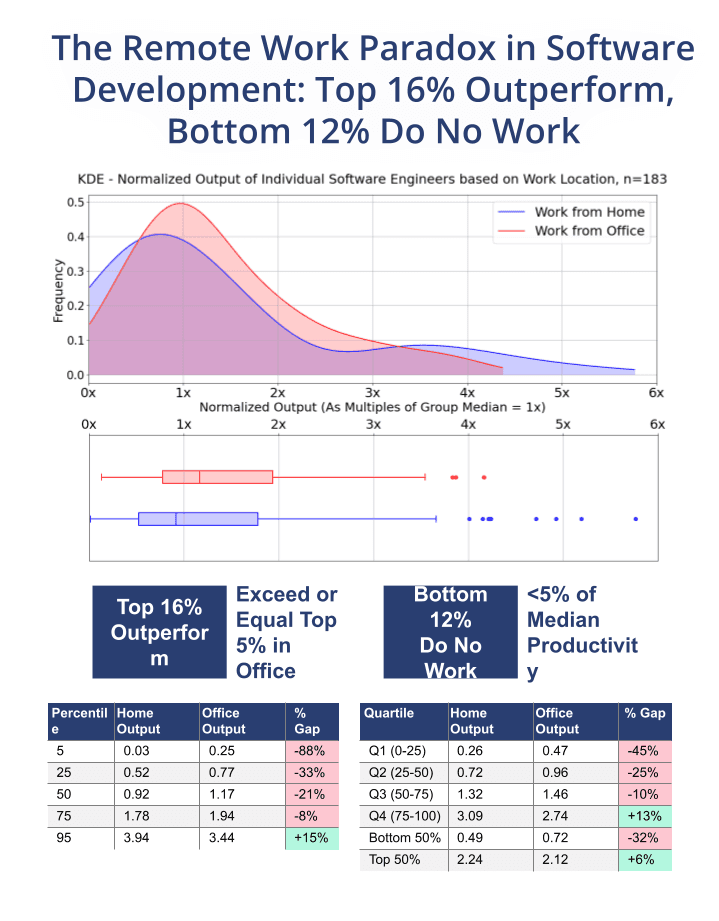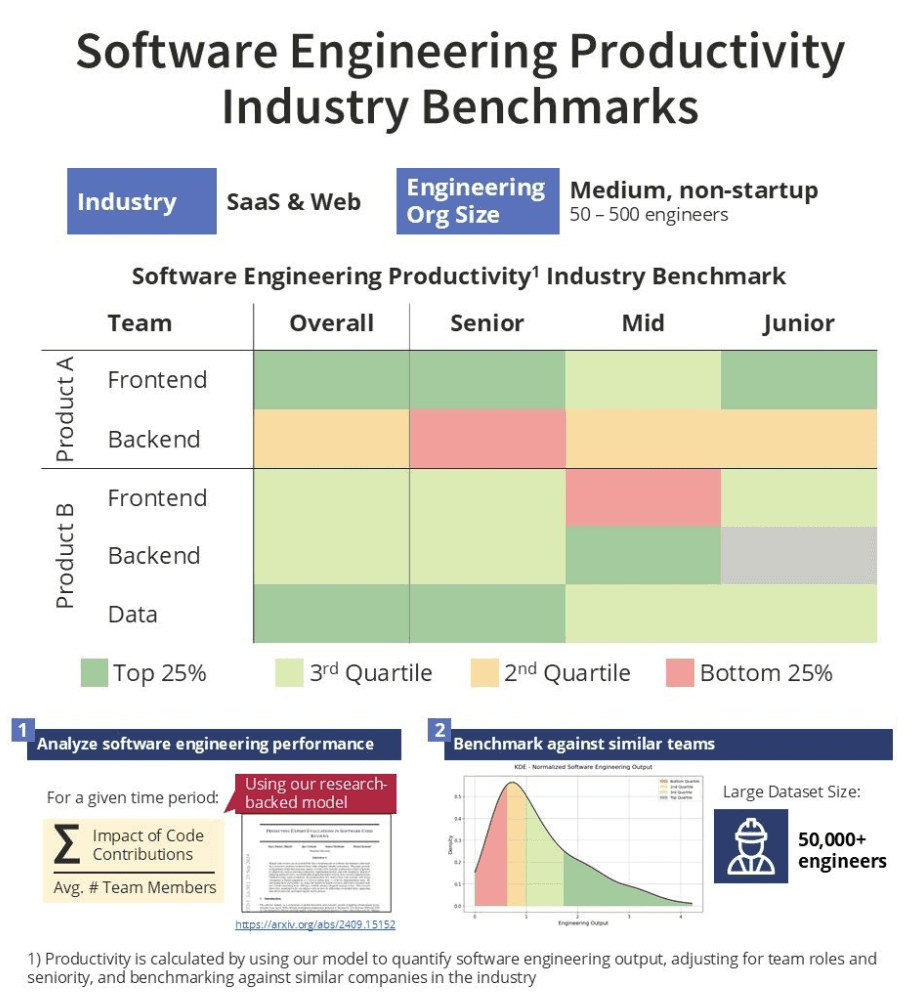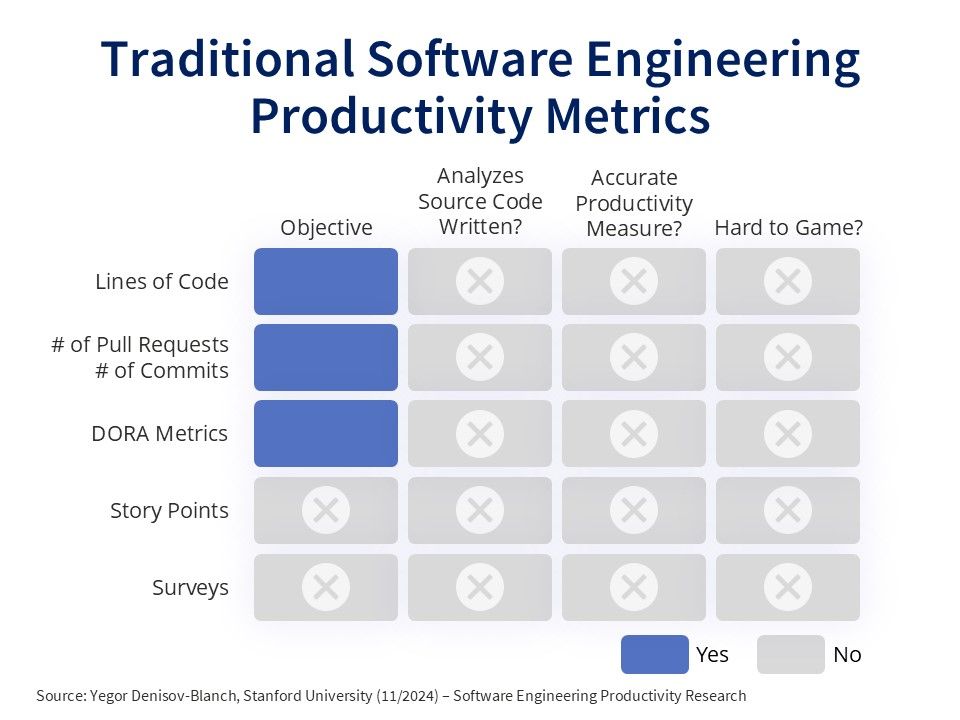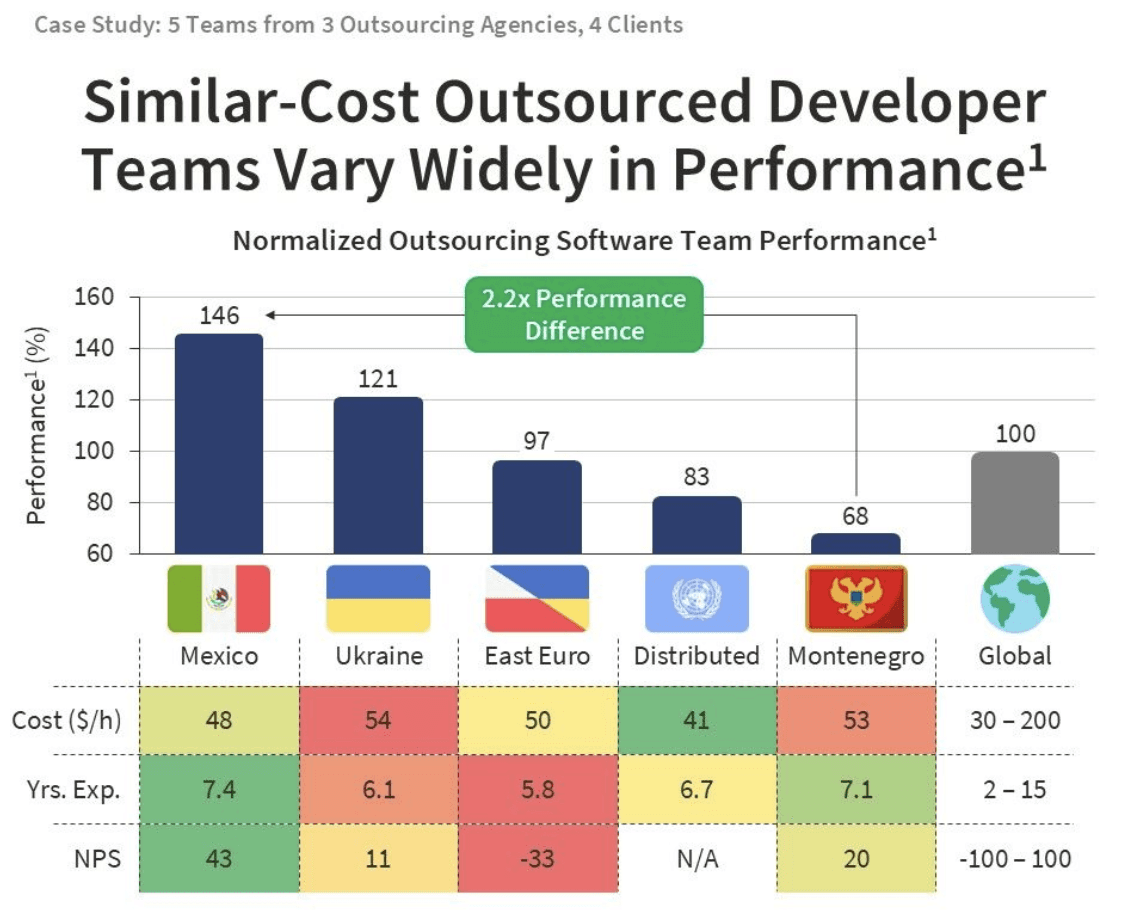
Our study reveals paradoxical results: the top 16% of devs excel when working remotely, but the bottom 12% hardly get any work done.
Based on a modest sample size (27 teams, n=183), the evidence shows that remote work can bring out the best in top performers, but it can also be disastrous for those who perform poorly.
Why do the low performers lag behind when working remotely? Are they lacking motivation, missing proper training, or balancing multiple jobs?
On the flip side, do top performers work better at home because they can focus and save time on commuting? How does this impact the team’s productivity as a whole?
Our research suggests that success in remote, hybrid, or in-office environments hinges on three things: the culture of the company, the team's ability to work together, and the nature of the work being performed. All three models can work well.
To choose the right work model for your team, rely on objective data. But be careful with traditional productivity metrics, as they don’t provide an accurate picture.
Traditional metrics fail to reliably measure developer productivity, don't analyze the source code written, may incentivize undesirable behavior, and can be easily manipulated.
Methodology:
Sample: 183 developers across 27 teams in 11 organizations
Languages: PHP & Python
We use an algorithm that quantitatively measures developer productivity by analyzing the functionality of source code across Git repos. We quantify the code commit by commit. This algorithm generates a language-agnostic & style-independent metric for evaluating individual developers and developer teams.

About Our Mission:
This study is part of a research initiative at Stanford with the goal of quantifying software engineering productivity.
We aim to help engineering teams make decisions based on objective data, not intuition and politics.
Our study participants use our algo to make decisions about work methods, team composition, headcount, outsourcing, tool use, etc.
Disclaimer: This is a case study with a modest sample size. To make definitive conclusions, we need more participants for further research.





